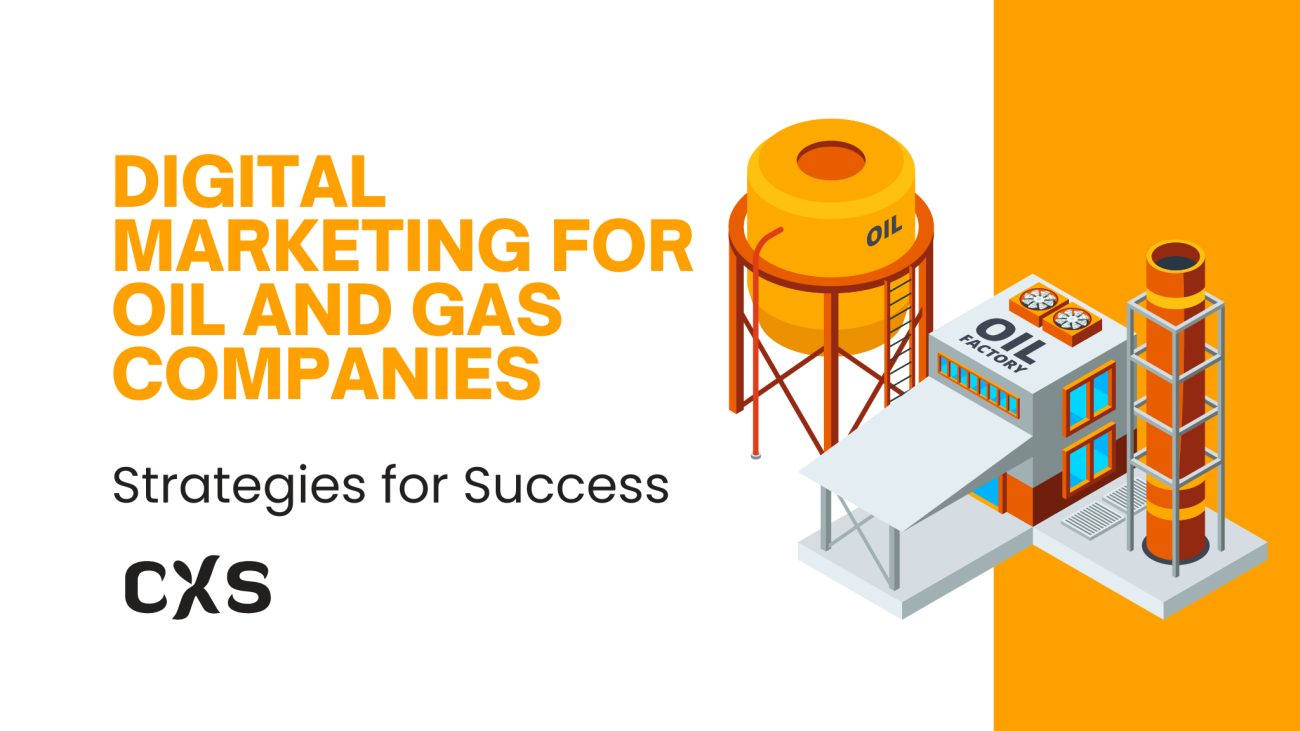Introduction
The oil and gas industry is traditionally driven by large-scale operations, industrial partnerships, and government contracts. However, in today’s digital age, a strong online presence is crucial for industry players to enhance brand visibility, attract investors, and improve stakeholder engagement. Digital Marketing for Oil and Gas Companies offers a competitive edge by leveraging modern tools like SEO, content marketing, social media, and data analytics.
Why Digital Marketing is Essential for Oil and Gas Companies
1. Increased Brand Awareness
A strong online presence ensures that key stakeholders, investors, and customers recognize your brand, fostering trust and credibility. Digital platforms allow companies to showcase their expertise and innovations, building a recognizable brand identity in a competitive market.
2. Lead Generation and Business Growth
B2B marketing strategies, such as LinkedIn outreach, PPC (Pay-Per-Click) advertising, and email campaigns, help generate qualified leads and nurture long-term business relationships. Targeted campaigns ensure that marketing efforts reach decision-makers and potential investors.
3. Competitive Advantage
With growing competition, companies using data-driven marketing strategies gain an edge by targeting the right audience with precision. Digital analytics help identify trends, predict demand, and optimize marketing efforts for better ROI.
4. Improved Customer Engagement
Digital marketing provides multiple touchpoints, from social media to personalized email campaigns, allowing companies to interact with stakeholders and improve engagement. Interactive content, Q&A sessions, and industry discussions help establish authority and reliability.
Related: Top Challenges in Digital Marketing
Related: Top 15 Digital Marketing Trends 2025
Key Digital Marketing Strategies for Oil and Gas Companies
1. Search Engine Optimization (SEO) for Visibility
SEO is fundamental in ensuring your business ranks high in search engine results when potential clients search for services related to oil and gas. Key strategies include:
Keyword Research: Optimize content for industry-specific keywords like “Digital Marketing for Oil and Gas Companies,” “energy sector marketing,” and “offshore drilling solutions.”
On-Page SEO: Use structured content, meta descriptions, and internal linking to improve search rankings.
Technical SEO: Enhance website speed, mobile responsiveness, and schema markup to boost visibility.
Local SEO: Optimize Google My Business listings to rank for location-based searches and attract regional clients.
2. Content Marketing: Educating and Engaging Your Audience
Creating valuable content helps establish thought leadership and build trust within the industry. Consider:
Blog Posts & Articles: Publish industry insights, energy trends, and innovations in oil and gas technology.
Whitepapers & Case Studies: Provide in-depth analysis and success stories to attract B2B clients and investors.
Video Marketing: Share informative videos on drilling technology, sustainability efforts, or corporate social responsibility (CSR) initiatives.
Infographics & E-books: Use visually appealing formats to explain complex industry concepts.
3. Social Media Marketing: Building Relationships
Platforms like LinkedIn, Twitter, and YouTube are powerful for B2B networking and brand positioning. Effective social media strategies include:
LinkedIn Thought Leadership: Share insights, company updates, and employee stories to engage decision-makers.
Twitter for Industry News: Participate in discussions and share real-time updates on oil prices, energy policies, and company achievements.
YouTube Video Content: Showcase infrastructure, safety protocols, and innovative technologies in action.
Community Engagement: Respond to comments and inquiries to build credibility and trust.
4. Pay-Per-Click (PPC) Advertising for Immediate Impact
For quick results, PPC advertising is a valuable strategy. Companies can invest in:
Google Ads: Target industry-specific keywords for high-intent searches.
LinkedIn Ads: Reach decision-makers in energy corporations and government sectors.
Display Ads: Use banner ads on relevant industry websites for wider exposure.
Retargeting Campaigns: Re-engage website visitors and nurture leads through strategic display ads.
5. Email Marketing for B2B Lead Nurturing
Email remains one of the most effective tools for building professional relationships. Strategies include:
Newsletters: Share industry updates, reports, and regulatory changes to keep stakeholders informed.
Drip Campaigns: Automate emails based on user interactions to nurture leads effectively.
Personalized Outreach: Send tailored messages to investors, partners, and suppliers to strengthen relationships.
Event Invitations: Promote industry conferences, webinars, and networking events via email.
6. Analytics and Data-Driven Decision Making
Tracking digital marketing efforts is essential for optimizing performance. Use:
Google Analytics: Monitor website traffic, user behavior, and conversion rates to adjust strategies accordingly.
Social Media Insights: Evaluate engagement, audience demographics, and performance metrics.
CRM Tools: Track lead generation, customer interactions, and email campaign effectiveness.
A/B Testing: Compare different campaign versions to determine the most effective approach.
Overcoming Digital Marketing Challenges in the Oil & Gas Sector
Despite the benefits, Digital Marketing strategies for Oil and Gas Companies come with unique challenges:
Regulatory Compliance: Ensure content aligns with industry regulations and policies.
Target Audience Identification: Use data analytics to segment audiences and tailor campaigns based on market demand.
Long Sales Cycles: Implement account-based marketing (ABM) and lead nurturing strategies to sustain engagement over time.
Crisis Management: Address industry challenges like fluctuating oil prices or environmental concerns proactively.
Conclusion
The oil and gas industry is evolving, and Digital Marketing strategies for Oil and Gas Companies have become a critical component in maintaining a competitive edge. By leveraging SEO, content marketing, social media, PPC, and analytics, companies can enhance brand awareness, generate leads, and foster long-term business relationships.
A strategic digital marketing approach ensures sustainability and growth in an increasingly digitalized world. Partnering with an experienced digital marketing agency can help oil and gas companies maximize their online presence and achieve business goals efficiently.
Need Help with Digital Marketing for Your Oil & Gas Business?
CyberX Studio provides 360-degree digital marketing solutions, helping oil and gas companies establish a robust online presence, generate leads, and optimize marketing efforts. Contact us today to build a data-driven marketing strategy that fuels your business growth!

